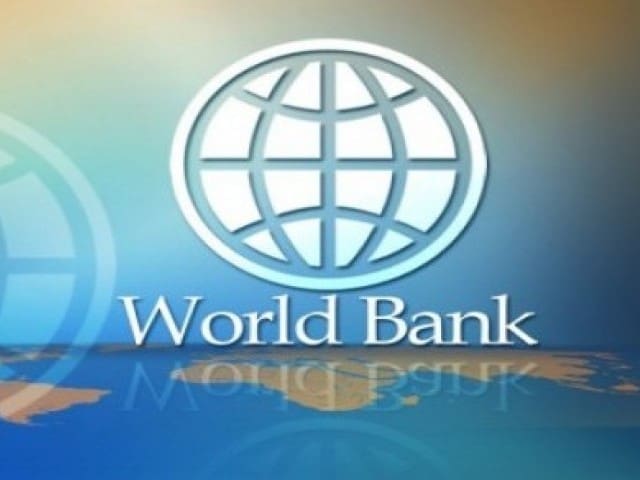The World Bank has added its influential voice to years of advocacy by Civil Society Organizations (CSOs) calling for Ghana to enact comprehensive competition legislation, warning that the absence of such laws undermines the country’s business environment and investment prospects.
In its 2025 Policy Notes titled “Transforming Ghana in a Generation,” the Bretton Woods Institution argues that adopting a Competition Act to promote fair markets and protect consumers remains essential for Ghana’s economic transformation.
The recommendation reinforces sustained advocacy by organizations including CUTS International and IMANI Africa, which have pressed successive governments for competition law passage through policy briefs and public campaigns spanning multiple years.
Despite this sustained pressure, Ghana’s proposed competition bill remains stalled in the legislative process, leaving consumers and businesses without legal frameworks to address anti-competitive practices that civil society groups argue have become entrenched across various sectors.
The World Bank’s 2025 assessment acknowledges Ghana’s impressive economic turnaround, including stabilizing inflation, quarterly growth, expanding foreign reserves, and restored investor confidence, but identifies institutional gaps that could undermine long-term competitiveness.
The Bank’s intervention comes amid ongoing regulatory disputes that advocates believe demonstrate the urgent need for competition oversight. Recent controversies involving MultiChoice’s pricing strategies and concerns about MTN’s market dominance exemplify situations that comprehensive competition legislation could address more effectively.
Without legal frameworks preventing anti-competitive behavior, large corporations continue dominating industries from telecommunications to retail, leaving smaller businesses struggling for market access while consumers face potentially exploitative pricing structures.
The World Bank’s policy recommendations extend beyond competition law to encompass broader business environment reforms. The institution calls for adopting a new Investment Code, developing comprehensive Foreign Direct Investment (FDI) policy frameworks, and implementing extensive digitalization initiatives.
“Digitalizing and streamlining key business processes by deploying an integrated e-registration system, launching online portals for construction permits and property transfers and digital dispute resolution mechanisms,” represents a core component of the Bank’s modernization agenda.
These recommendations align with the Bank’s projection that Ghana could sustain annual growth rates above 6.5 percent and triple per capita income by 2050 through bold and consistent policy implementation.
Civil society advocates argue that competition law delays cost Ghana more than legislative inaction – they represent missed opportunities for innovation, fair pricing, and investor confidence that comprehensive market regulation could unlock.
The persistence of monopolistic practices across key sectors reflects regulatory gaps that competition legislation could address through enforcement mechanisms, merger oversight, and consumer protection standards aligned with international best practices.
Ghana’s telecommunications sector, dominated by MTN with substantial market share, illustrates how inadequate competition frameworks can entrench market positions that may not serve consumer interests optimally.
Similarly, the ongoing MultiChoice dispute highlights how regulatory responses to pricing controversies could benefit from established competition law frameworks rather than ad hoc government interventions.
The World Bank’s support for competition legislation reflects broader international recognition that effective market regulation underpins sustainable economic development and attracts foreign investment seeking predictable, fair operating environments.
However, implementing comprehensive competition law requires more than legislative passage – it demands institutional capacity building, enforcement mechanisms, and regulatory expertise that Ghana must develop alongside legal frameworks.
Previous attempts to advance competition legislation have encountered various obstacles, including concerns about implementation costs, regulatory capacity limitations, and potential impacts on existing business arrangements.
The current government, operating with what the World Bank describes as “strong popular mandate and significant political capital,” may possess unique opportunities to advance previously stalled institutional reforms including competition law.
Regional experiences demonstrate that effective competition legislation can enhance market efficiency while protecting consumer interests, though success depends heavily on implementation quality and enforcement consistency.
Ghana’s aspirations for economic transformation and sustained growth require institutional foundations that support fair competition, innovation, and consumer protection – precisely the outcomes that comprehensive competition law could deliver.
The World Bank’s endorsement provides additional momentum for civil society advocacy that has maintained pressure on successive governments despite limited legislative progress over recent years.
The convergence of World Bank recommendations, civil society pressure, and current government reform commitments creates potential opportunities for finally advancing Ghana’s long-delayed competition legislation.
The ultimate test will be whether institutional inertia and vested interests that have previously prevented progress can be overcome through sustained political commitment and comprehensive implementation planning.
Source: newsghana.com.gh











